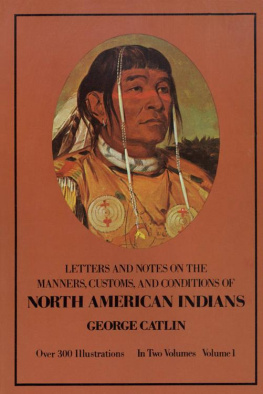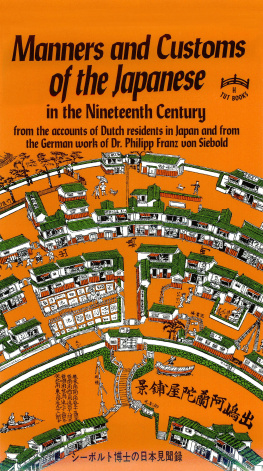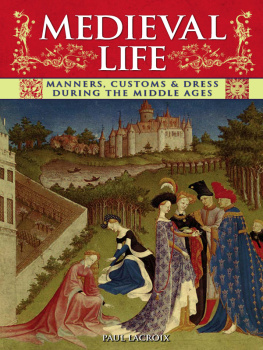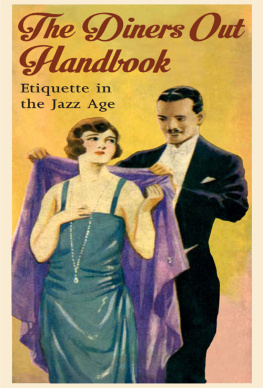John Campbell Johnstone - Maoria--A Sketch of the Manners and Customs of the Aboriginal Inhabitants of New Zealand
Here you can read online John Campbell Johnstone - Maoria--A Sketch of the Manners and Customs of the Aboriginal Inhabitants of New Zealand full text of the book (entire story) in english for free. Download pdf and epub, get meaning, cover and reviews about this ebook. year: 2014, publisher: John Campbell Johnstone, genre: Detective and thriller. Description of the work, (preface) as well as reviews are available. Best literature library LitArk.com created for fans of good reading and offers a wide selection of genres:
Romance novel
Science fiction
Adventure
Detective
Science
History
Home and family
Prose
Art
Politics
Computer
Non-fiction
Religion
Business
Children
Humor
Choose a favorite category and find really read worthwhile books. Enjoy immersion in the world of imagination, feel the emotions of the characters or learn something new for yourself, make an fascinating discovery.
- Book:Maoria--A Sketch of the Manners and Customs of the Aboriginal Inhabitants of New Zealand
- Author:
- Publisher:John Campbell Johnstone
- Genre:
- Year:2014
- Rating:4 / 5
- Favourites:Add to favourites
- Your mark:
- 80
- 1
- 2
- 3
- 4
- 5
Maoria--A Sketch of the Manners and Customs of the Aboriginal Inhabitants of New Zealand: summary, description and annotation
We offer to read an annotation, description, summary or preface (depends on what the author of the book "Maoria--A Sketch of the Manners and Customs of the Aboriginal Inhabitants of New Zealand" wrote himself). If you haven't found the necessary information about the book — write in the comments, we will try to find it.
Maoria--A Sketch of the Manners and Customs of the Aboriginal Inhabitants of New Zealand — read online for free the complete book (whole text) full work
Below is the text of the book, divided by pages. System saving the place of the last page read, allows you to conveniently read the book "Maoria--A Sketch of the Manners and Customs of the Aboriginal Inhabitants of New Zealand" online for free, without having to search again every time where you left off. Put a bookmark, and you can go to the page where you finished reading at any time.
Font size:
Interval:
Bookmark:
Unceasing preparations were carried forward to resist the coming invasion. The fishing-suburb of Kauroa was destroyed, that it might not afford shelter to the enemy, and the palisades were floated up the Mohaka stream broken up, and stored in the fortress for fuel. The harvest was gathered, and carefully garnered in pits in the fort; not a fine day passed without the gigantic sea-nets being hauled upon the sandy north shore; and all the fish they contained which could be dried in the sun, were prepared and laid in store. Scarcely a day elapsed without the arrival of canoes loaded with provisions sent as presents from up the river. The upper tribes of the river had refused to enter upon the war, but individuals and families, not having the laws of neutrality before their eyes, were moved by relationship or affection, and brought provisions for the garrison. Some, too, who had left home merely with the intention of taking down provisions, urged either by the desire of making great their names, or by "aroha" (love and sorrow in one word) for the garrison, refused to return with their companions, and cast in their lot with that of the defenders of the Fortress. All preparations were finished, even to sinking the most valuable canoes in distant swamps, where it was impossible that they could ever be recovered without the presence of those who had assisted at their concealment; but the enemy delayed making his appearance. This long delay was felt to be an injury, and caused dissatisfaction. They had to undergo a disagreeable operation, the sooner it was over the better; and they naturally felt impatient for the commencement of a siege, of the result of which none felt the slightest misgiving.
At length the North concentrated its might and marched towards the fortress. This time there was no attempt to stay their progress, and at Onwhero they halted unmolested to tangi (weep) for Nini, and all who had fallen, and to vow vengeance upon those who had slain their friends.
The fine weather, it was the close of autumn, favoured them, and they timed their march so that a fleet of their canoes, laden with provisions, crossed the bar as they marched along the sands in front of the fort. "Slow and sure" appeared to be the maxim of the Rarawa, for they made no attempt to cross the river that day. The following day they marched up the river to where the stream divided among the islands, forded it at low water, marched down the left bank, and made their appearance in due form under the walls of the fortress. They danced war dances, sang war songs, taunted the garrison, and announced their intention of building a Pa under their walls, and starving them into submission. To taunts and threats the garrison were deaf as the grim wooden figures, which, from the tops of the palisades, looked down and defied, the Rarawa. Not a voice answered, not a man showed himself. In vain the besiegers danced the war dance, sounded the war trumpet, and exhausted their ingenuity in the invention of opprobrious taunts. In haughty silence the garrison mocked their threats. A quarrel, in which one party makes no reply, is not exciting; so, having vainly wasted their fury, the Northern army fixed upon the site of their encampment, a short distance from the fort gates, and as near as the nature of the ground would admit. The actions of the Northern hordes soon showed that they had entered upon the siege with a terrible earnestness of purpose. After the day of their arrival, they wasted no time in idle displays. They marked out the lines of a large Pa, which they proceeded to fortify. This effected, the substantial houses they built made it unmistakably evident that they anticipated, and had undertaken, a long siege. They were indefatigable in storing provisions before the winter came upon them; trains of slaves were perpetually upon the road between their camp and their homes; and, whenever the weather permitted, their canoes risked the short voyage between the river and the northern estuary.
While they were engaged in felling pine trees for the palisades of their Pa, some little distance up the river, they were met by a deputation from the tribes of its upper waters, who came to enquire whether the Rarawa and their allies wished the war to extend over the whole river, or whether they were willing to confine it below the ford among the islands between two and three leagues above Ngutukaka?
The northern tribes had quite enough upon their hands, and had no wish to increase the number of their enemies. The embassy was therefore received very graciously, and assured that the invasion should not extend above the islands.
Literally the first stone was thrown from the fort. The Pa of the Rarawa was completed, and the white palisades made of soft wood, not intended to be permanent, were in position, when, one afternoon while a strong south-west wind was blowing, a shower of red-hot stones slung from the fortress rushed, borne upon its wings, over the camp. These missiles effected the mission upon which they were sent, and, in a few minutes, a fire, which commenced upon the roofs of the houses, was raging with a rapidity and fierceness only to be equalled in a town similarly constructed of wood, reeds, and rushes. The blow fell heavily upon the besiegers. In a few hours they lost the labour of months, and though they could easily renew their fortified camp, their loss in provisions was irreparable.
Then for the first time the triumphant Ngatiroa made a demonstration. In the lunette appeared a body of warriors as if about to sally, and upon the face of the hill fort an immense crowd assembled, waving garments, and shouting cries of welcome and invitations to their enemies to come into Ngutukaka. The Rarawa fell into their ranks, dancing, shouting, and calling upon the besieged to come forth and fight like men, and not to wait till they were conquered by famine. Excited almost to madness by these taunts, the warriors in the outwork danced and sang with such fury that their enemies hoped and expected to see "the great mouth" open, and the besieged sally forth from under their walls; but prudence prevailed, and the gates remained closed.
If the besieged had any expectation that the loss of their camp would force the Rarawa to raise the siege, they were soon undeceived, for their enemies lost not a day in repairing the disaster. They moved their camp some distance down the Mohaka, and again raised fortifications and built houses; and, by cutting a deep trench from the stream above their camp, and leading the aqueduct through the centre of their Pa, secured themselves , as far as was possible, against a second onflagration.
Many months passed without the least symptom of weariness on the part of the besiegers. Winter had come and gone, and the yellow flowers of the kowhai were proclaiming mid-spring, when the besieged began to feel that what they had looked upon as bravado, might prove to be stern reality. The Rarawa had for some time been clearing and digging the kumira grounds in the neighbourhood. This was not done, as had been supposed, as an empty threat, for they planted large fields of fresh kumira and taro.
This sight struck a chill into the defenders of Ngutukaka. All ranks and ages dearly loved freedom and the open air, and long confinement and want of change of diet had commenced to do their work. Sickness and discontent were stealthily introducing themselves amongst the garrison. A few old people and a few young children had succumbed, and abandoned the closed fort for the open plains of the next world. This was to be expected as inevitable, but the sagacious Te Wira saw that it would no longer be safe to continue the interdict or tapu he had placed upon all egress from the fort. To satisfy the inextinguishable craving for fresh food inherent in all races, except among the vegetarians who live under the laws of the great Hindu legislator, Munu (and even they must have fresh butter), a family had appropriated, killed, and eaten a dog belonging to another hapu of the tribe. A dispute about the animal arose between the two families, and so great was the craving, not only for food, but for excitement, that in a very short space of time nearly one half of the garrison, ranged upon the side of the owners of the dog, with arms in their hands were defying the other family and its equally numerous supporters.
Font size:
Interval:
Bookmark:
Similar books «Maoria--A Sketch of the Manners and Customs of the Aboriginal Inhabitants of New Zealand»
Look at similar books to Maoria--A Sketch of the Manners and Customs of the Aboriginal Inhabitants of New Zealand. We have selected literature similar in name and meaning in the hope of providing readers with more options to find new, interesting, not yet read works.
Discussion, reviews of the book Maoria--A Sketch of the Manners and Customs of the Aboriginal Inhabitants of New Zealand and just readers' own opinions. Leave your comments, write what you think about the work, its meaning or the main characters. Specify what exactly you liked and what you didn't like, and why you think so.










